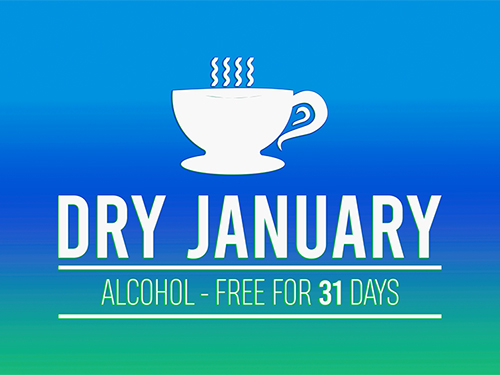Dry January: How to stay alcohol-free for a month
Giving up alcohol can mean improved health, weight loss, better sleep and more energy
As the holidays end, millions of people give up alcohol in a month-long sobriety challenge called Dry January.
During a time of multiple celebrations, alcohol consumption can easily get away from us. One glass becomes two, two glasses become three, and suddenly, the bottle’s gone.
“Addiction sneaks up on you,” said UC Davis Health patient navigator and substance abuse counselor Tommie Trevino.
“When someone starts questioning whether they have a problem, I suggest they abstain for 30 days. I say, ‘If you can’t stop for 30 days, why not?’ Then we may need to reevaluate the person’s relationship with alcohol,” Trevino said.
What is Dry January?
Dry January is a public health initiative launched in 2013 by Alcohol Change UK.
The challenge? Stop drinking alcohol for 31 days. For people concerned they drink too much (or too often), the idea is to slow things down. Dry January is also for anyone looking to start the new year on a healthier note.
Excessive alcohol use is unhealthy and can lead to chronic diseases like high blood pressure, heart disease and liver disease.
Alcohol use also increases the risk of cancer of the mouth and throat, voice box (larynx), esophagus, colon, rectum and liver. Alcohol increases the risk of breast cancer in women. Women who drink are also more vulnerable to brain and heart damage than men, according to scientific studies.
Historically, more men have been heavy drinkers. But despite the health risks, the gender gap in alcohol consumption has closed, with more women drinking now than ever before.
The health benefits of giving up alcohol for a month
While a month of sobriety can seem overwhelming for some, it comes with big advantages, Trevino said. Among them:
- Weight loss
- Better sleep
- Improved mood and energy levels
- Increased physical activity due to more energy
- Better diet due to better dietary restraint and fewer empty calorie intake
- Decreased growth factors related to cancer, insulin resistance, and blood pressure
- A reduction in liver fat and blood sugar
Trevino added that one month is enough time for people to assess their drinking. And research shows even a brief break from alcohol for moderate to heavy drinkers can produce immediate health benefits.
6 tips to keep you on track for Dry January
If you are worried it will be hard to stay on track for a month, the NIAAA (National Institute on Alcohol Abuse and Alcoholism) has come up with some helpful tips:
- Identify why you choose to drink alcohol. For example, is it to have fun, deal with stress and anxiety, or fall asleep? Think about how you could do those things without alcohol, such as playing games instead of drinking at a party, meeting friends for a hike, taking a walk or doing yoga.
- Let friends and family know about your plan to participate in Dry January. Consider asking them to join you and support each other throughout the month.
- Make sure alcohol-free beverages are available at parties and gatherings. With the growing popularity of “mocktails,” non-alcoholic drinks don’t have to be boring.
- Have a polite, firm "no, thanks" ready for when someone offers you an alcoholic drink.
- As January progresses, pay attention to how you feel. Are you sleeping better? Do you have more energy? When you notice benefits, make note of them! It will help you keep your momentum going.
- Have a plan in place for when January ends. As with changing eating habits, it is easy to resume old patterns without a long-term plan in place.
Alcohol Change UK also has a free app, Try Dry®, to help improve your chances of having an alcohol-free month.
If you are interested in assessing your drinking habits, Rethinking Drinking is a good resource. The NIAAA Alcohol Treatment Navigator also has information about treatment for alcohol use disorder.




